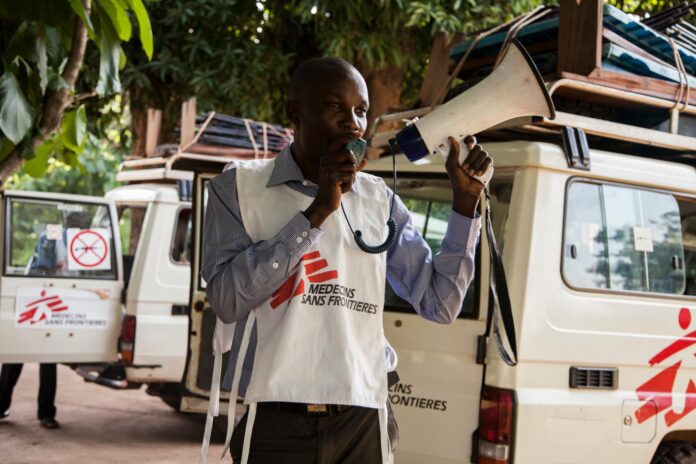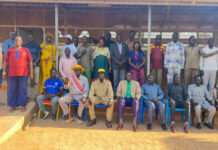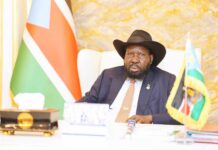“I didn’t think that this hospital was going to be bombed,” says David Charo Kahindi, Médecins Sans Frontières (MSF) Medical Coordinator in South Sudan, who witnessed the aftermath of an airstrike that devastated Old Fangak Hospital.
Kahindi was in Old Fangak on the morning of the attack and was part of the team that fought to extinguish the fire, treat the wounded, and evacuate patients. The bombing began at approximately 4:50 a.m. on Saturday.
“I was woken by the bombing. Helicopters flew overhead, and people were screaming everywhere. Every moment the helicopters circled, I feared for my life, and for our patients, staff, and the community,” he recalled.
The bombing lasted for about an hour. When it stopped, Kahindi rushed to the hospital by boat. At the entrance, he was met by a scene of destruction.
“The hospital gate was shattered. There were bullets everywhere. Inside, fragments of exploded weaponry littered the compound,” he said.
The hospital pharmacy was already engulfed in flames. Staff and community members scrambled with buckets of water to contain the fire. There was an urgent fear that nearby fuel tanks could explode if the flames spread further.
“We hoped we could save some of the medications, but it became clear that the attackers intended to destroy the pharmacy entirely. It took five hours to put out the fire,” Kahindi said.
Inside the hospital, the devastation continued. The men’s and women’s wards were empty. Bullet holes marked the walls and floors. Bloodstains indicated that patients had either fled or been evacuated amid chaos.
Kahindi then reached the emergency room, where MSF staff were treating 20 injured civilians—many in critical condition.
“Some had been shot in the head, chest, and abdomen. We did what we could, but we lacked adequate supplies. We were working with only what we had before the attack,” he said.
Patients were later evacuated by speedboat to a remote village considered to be a safer location. The makeshift clinic there consisted only of a tent, where wounded women and children—some as young as 15—received limited care with the remaining supplies. The next day, they were airlifted to Akobo for further treatment.
However, an estimated 10,000 people had also fled to the same village, overwhelming the already fragile setup.
“By morning, it was clear we didn’t have the supplies to provide medical care to that many people,” Kahindi said.
MSF urgently appealed for assistance. With support from the United Nations, 350 kilograms of emergency medical supplies were airlifted to the site to run a temporary health post.
Despite the efforts, bombing continues in surrounding areas, and the risk to civilians remains high.
“I am completely heartbroken. This hospital had served more than 100,000 people for over a decade. It had inpatient wards, a maternity unit, and outpatient services. Now, there is nothing left,” Kahindi said. “Hospitals should never be targets. I utterly condemn this attack.”





